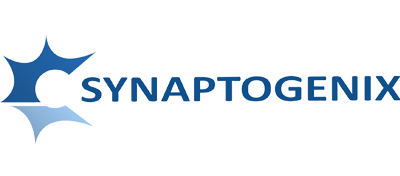Neurotrope Announces the Initiation of Enrollment of its Confirmatory Phase 2 Trial in Alzheimer’s Disease
NEW YORK, July 16, 2018 /PRNewswire/ — Neurotrope Inc. (NTRP) a clinical-stage biopharmaceutical company developing novel therapies for neurodegenerative diseases, including Alzheimer’s disease (AD), is announcing that the first patient has been enrolled into its confirmatory Phase 2 clinical trial with its lead Alzheimer’s disease drug, Bryostatin-1. Patient recruitment will take place at approximately 30 clinical sites in the United States. This follow-on confirmatory clinical trial is planned to include 100 patients with moderate to severe AD (defined as a Mini Mental State Exam 2 score of 4-15). Patients will be randomized 1:1 to be treated with either Bryostatin-1 20ug or placebo, receiving 7 doses over 12 weeks. Patients on memantine, an NMDA receptor antagonist, will be excluded unless they have been discontinued from memantine treatment for a 30-day washout period prior to study enrollment. The primary efficacy endpoint is the change in the Severe Impairment Battery (SIB) score between the baseline and the average of weeks 13 and 15. In our previous Phase 2 trial, patients in the bryostatin 20ug dose group not receiving concurrent memantine treatment exhibited a SIB score improvement from baseline of over 6 points. There was no corresponding treatment effect for memantine-treated patients. Both bryostatin and memantine, an N-Methyl-D-aspartate (NMDA) receptor antagonist, engage the NMDA receptor. This convergence of memantine and PKC on the NMDA receptor may explain why patients who were not taking memantine during the trial exhibited a consistent cognitive improvement as measured by the SIB. In the absence of memantine, which blocks the NMDA receptor, bryostatin-activated PKC epsilon contributes to the regulation of this receptor.
“The potentially important persistence of the bryostatin-induced improvement in the SIB scores in our recently completed Phase 2 trial, even one month after completion of all dosing, is an effect that we hope to repeat in this confirmatory trial. Immunologic A Beta degradation has recently been the target of Biogen trials that appear to reduce the rate of cognitive decline in prodromal and early AD patients. Bryostatin’s mechanism also contributes to the elimination of A Beta oligomers and amyloid plaques through activation of brain A Beta degradation enzymes. In addition, we believe the persistent reversal of cognitive decline in advanced AD patients may result from the multi-modal efficacies of bryostatin that include growth of new synapses and prevention of neuronal death. In late-stage AD patients in our Phase 2 trial, bryostatin appeared to cause an increase in cognition – i.e. sustained improvement of SIB scores over baseline. Bryostatin’s sustained cognitive improvement is consistent with a long-lasting consequence of PKC epsilon-growth factor effects that could induce the growth and/or maturation of synaptic networks in the brain. Our hope is that this might translate into long lasting cognitive function benefit in advanced AD patients, and earlier stage patients,” said Dr. Daniel Alkon, Neurotrope’s President and Chief Scientific Officer.
“Since February 2018, when I joined Neurotrope, I have reviewed a more extensive data set from the previous Phase 2 trial that gives me even more confidence that bryostatin had a positive effect on the patients in that study. I have also been receiving very positive feedback from key opinion leaders and I am very encouraged that this confirmatory Phase 2 study is initiating,” said Dr. Charles Ryan, Chief Executive Officer of Neurotrope.
About Neurotrope
Neurotrope is at the forefront of developing a new approach to combating AD and other neurodegenerative diseases. The Company’s world-class science offers the potential to realize a paradigm shift to overcome one of today’s most challenging clinical problems — finding a way to slow or even prevent the progression of AD.
In addition to the Company’s Phase 2 trial of Bryostatin-1 in advanced AD, Neurotrope has also conducted preclinical studies of bryostatin as a potential treatment for Stroke, Traumatic Brain Injury, and Fragile X Syndrome, Niemann-Pick Type C disease and Rett Syndrome—rare genetic diseases for which only symptomatic treatments are currently available. The FDA has granted Orphan Drug Designation to Neurotrope for Bryostatin-1 as a treatment for Fragile X Syndrome. Bryostatin-1 has already undergone testing in more than 1,500 people in cancer studies, thus creating a large safety data base that will further inform clinical trial designs in AD.
Please visit www.neurotrope.com for further information.
Forward-Looking Statements
Any statements contained in this press release that do not describe historical facts may constitute forward-looking statements. These forward-looking statements include statements regarding the Phase 2 study and further studies, and continued development of use of Bryostatin-1 for Alzheimer’s dementia and other cognitive diseases. Such forward-looking statements are subject to risks and uncertainties and other influences, many of which the Company has no control over. These statements are subject to the risk that further analyses of the Phase 2 data may lead to different interpretations of the data than the analyses conducted to date and/or may identify important implications of the Phase 2 data that are not reflected in these statements. Clinical trial data are subject to differing interpretations, and regulatory agencies, medical and scientific experts and others may not share the Company’s views of the Phase 2 data. There can be no assurance that the clinical program for Bryostatin-1 will be successful in demonstrating safety and/or efficacy that we will not encounter problems or delays in clinical development, or that Bryostatin-1 will ever receive regulatory approval or be successfully commercialized. Actual results and the timing of certain events and circumstances may differ materially from those described by the forward-looking statements as a result of these risks and uncertainties. Additional factors that may influence or cause actual results to differ materially from expected or desired results may include, without limitation, the Company’s inability to obtain adequate financing, the significant length of time associated with drug development and related insufficient cash flows and resulting illiquidity, the Company’s patent portfolio, the Company’s inability to expand the Company’s business, significant government regulation of pharmaceuticals and the healthcare industry, lack of product diversification, availability of the Company’s raw materials, existing or increased competition, stock volatility and illiquidity, and the Company’s failure to implement the Company’s business plans or strategies. These and other factors are identified and described in more detail in the Company’s filings with the SEC, including the Company’s Annual Report on Form 10-K for the year ended December 31, 2017, and on Form 10-Q for the quarter ended March 31, 2018. The Company does not undertake to update these forward-looking statements.
Contact information:
Investors and Media
Jeffrey Benison, Director of Corporate Communications
Neurotrope, Inc.
516.286.6099 (C) or 212.334.8709 (O)
jbenison@neurotrope.com








